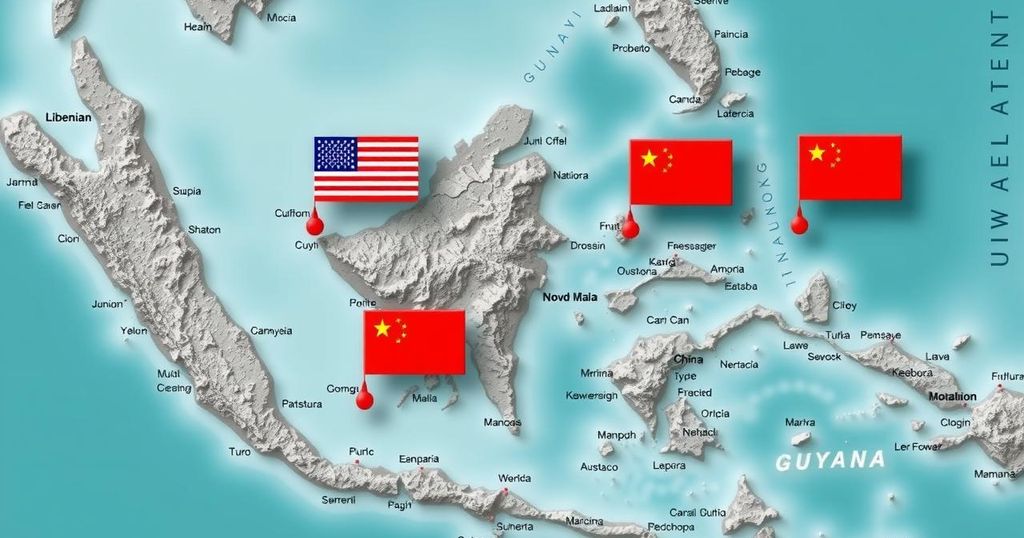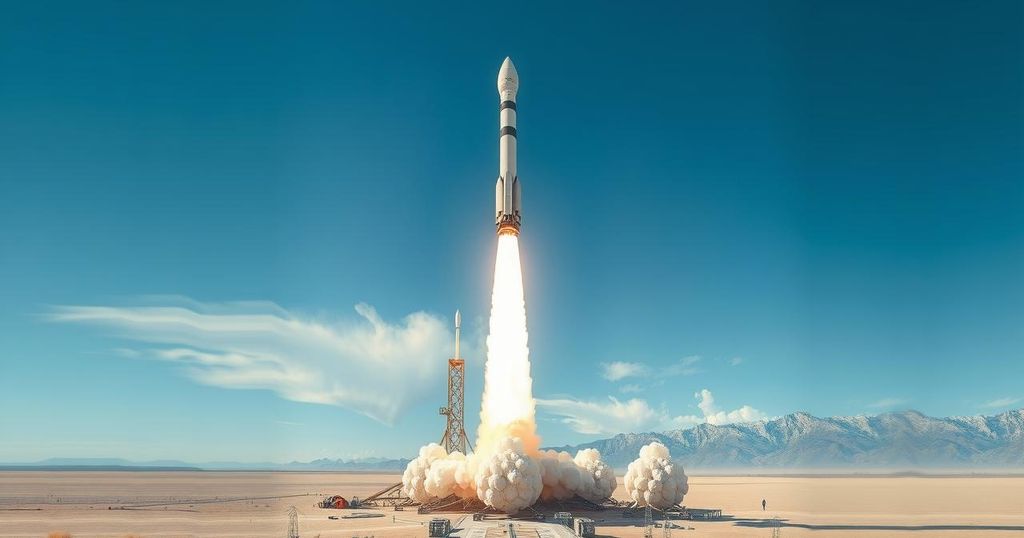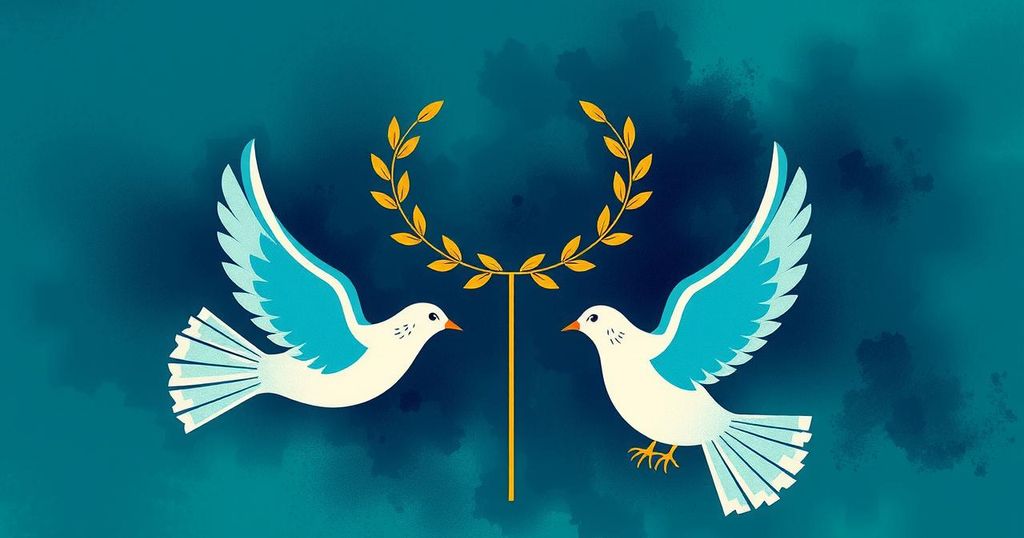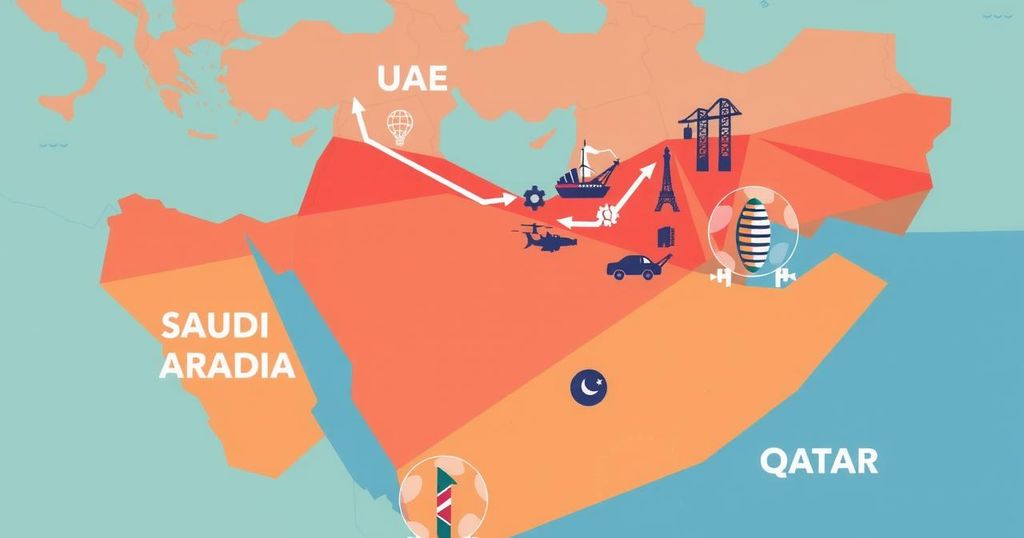Rising Tensions: Guyana’s Strategic Shift Towards the United States Over China
Tensions have risen between China and Guyana as President Irfaan Ali endorsed stronger ties with the U.S., asserting that America would enjoy preferential treatment. This comes as U.S. Secretary of State Marco Rubio pointed out concerns related to Chinese investments. In turn, China responded asserting its significant contributions to Guyana’s development. The discourse underscores a notable divide in foreign investment interests and relationships in the region.
Recently, tensions have risen between China and Guyana, amid the evolving relationship between the United States and the oil-rich CARICOM nation. Guyanese President Irfaan Ali sparked China’s ire by asserting during a joint news conference with American Secretary of State Marco Rubio that the United States would receive preferential treatment from Guyana due to their pledge to militarily defend the nation against any Venezuelan territorial claims.
At the conference, President Ali criticized the quality of work by Chinese engineering firms on Guyanese infrastructure projects, stating that some companies perform “terrible jobs.” He mentioned a particularly poor road built by Chinese workers, which led to significant discomfort for users. Yet, he acknowledged that American firms have not aggressively pursued investment opportunities in the region, a sentiment echoed by Surinamese President Chan Santokhi, who called for more involvement from U.S. private sector investors.
Secretary Rubio addressed concerns regarding Chinese control over local telecommunications, emphasizing that American companies might refrain from entering Guyana if such control persists. He underscored the need to provide alternatives to Chinese firms that are associated with subpar workmanship and financial dependencies, highlighting the negative impacts these could have on the local workforce.
In response to President Ali’s remarks, the Chinese mission in Guyana expressed its irritation, emphasizing the importance of their development aid and contribution to Guyana’s economic transformation. They asserted that China has always prioritized the China-Guyana friendship with concrete commitments. Notably, the Chinese telecommunications giant Huawei continues to expand its influence in Guyana by securing lucrative contracts for installing high-tech surveillance systems in coastal areas.
In conclusion, the diplomatic tensions between the United States and China regarding Guyana are escalating as the latter shows alignment with U.S. interests. President Ali’s call for preferential treatment of the U.S. reflects a significant shift in Guyana’s foreign relations, while criticism of Chinese engineering capabilities highlights growing frustrations with past projects. As U.S. companies face challenges in entering the market, the strategic presence of Chinese firms, particularly in telecommunications, continues to raise concerns.
Original Source: www.amny.com








Post Comment